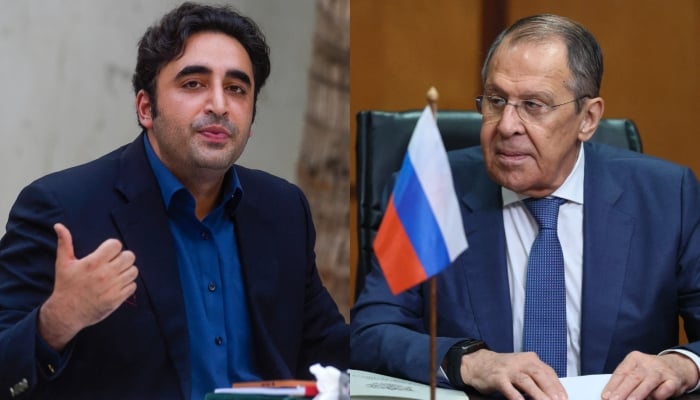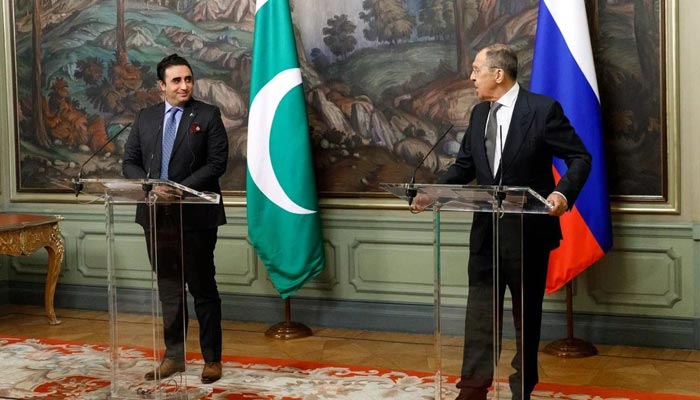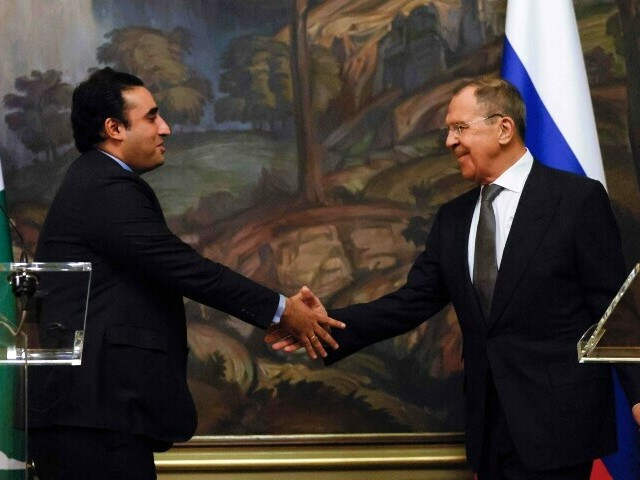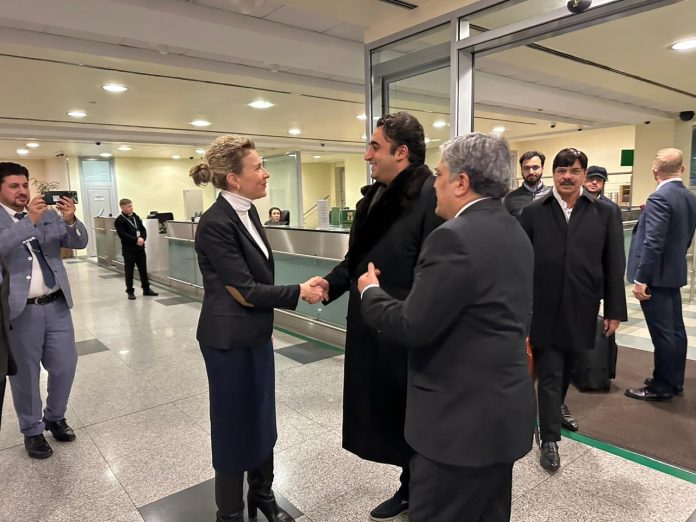During a meeting of the Pakistan-Russia Intergovernmental Commission held in Islamabad last week, the two countries agreed to begin crude oil supply to Pakistan by March this year amid a deepening energy and reserve crisis that is strangling Pakistan's economy.
The energy proposal didn't say what currency the business would be done in, but it did say that transactions between Moscow and Islamabad must be done in the "currency of friendly countries" instead of the US dollar.
Many people believe that the Russian ruble or the Chinese yuan will be the medium of trade between Russia and Pakistan. Russia is the second country with which Islamabad would transact in a currency other than the US dollar. Pakistan earlier had a currency swap agreement with China.
Russian and Pakistani officials also discussed reviving the proposed Stream Gas Pipeline Project, which was halted due to US and EU restrictions on Russian companies. The project was supposed to come out last year, but it was delayed and then put on hold for an undetermined amount of time.
Russian Energy Minister Nikolay Shulginov, who headed the Russian delegation and was in Islamabad last week for talks with Pakistani officials, delivered a "special message" of President Vladimir Putin to Prime Minister Shehbaz Sharif. In his message, Putin stated that Russia regards Pakistan as an "essential" partner in South Asia and the Islamic world and reaffirmed Moscow's strong interest in developing relations with Islamabad.
Discount rates
Speaking to the Russian state news agency RIA Novosti, Shulginov said that the rate, volumes, logistics, and insurance of crude oil and petroleum products will be determined after the signing of an agreement with Pakistan. "We conceptually agreed to construct and execute an agreement that will determine and resolve all other concerns," he explained.
Last year, Pakistani State Minister for Petroleum Musadik Malik flew to Moscow to deliberate on the energy deal. Malik told the media on his return that Russia would provide Pakistan with crude oil at discounted rates. He said that the discount could be greater than that given to other nations.
Sustained diplomatic efforts by Pakistan to restore economic ties with Russia to meet its energy requirements led to the current negotiations with Russia and the understanding to import oil from Russia. In February last year, former Pakistani Prime Minister Imran Khan was the first foreign leader to visit Moscow, at a time when Putin had recognized Donetsk and Lugansk as autonomous entities and sent troops there.
Imran discussed with the Russian leader the possibility of Russian crude oil supplies to Pakistan. The media reports suggest that during Putin and Imran's one-on-one meeting in Moscow, the two leaders also discussed the planned joint venture between Russian and Pakistani companies to build a multibillion-dollar gas pipeline through Pakistan. Imran Khan asserted that they had reached an agreement with Russian officials for the supply of crude oil at a discounted rate when he returned from Moscow, but Moscow later refuted this claim.
Khan was kicked out of office in April of last year after a vote of no confidence in the legislature. He blamed his removal on his trip to Moscow and said that the US conspired to overthrow his government.
Pakistan Stream Gas Pipeline Project
In 2015, Russia and Pakistan reached an agreement in principle to build a pipeline that would move imported liquefied natural gas (LNG) from Karachi on the Arabian Sea coast to power plants in the northeastern region of Punjab.
The pipeline's designed annual capacity was estimated at 12.4 billion cubic meters (bcm), with the potential for further expansion to 16 bcm. The cost estimates range from $1.5 billion to $3.5 billion, with Moscow funding 26% and Islamabad proposing to fund the remaining 74%. The project was scheduled to begin in 2020, but Russia was forced to replace the first participant when the Russian businesses were sanctioned by the US for reasons unrelated to the Pakistan Stream project.
Currently, the pipeline, a rare example of Russian cooperation, involves the Eurasian Pipeline Consortium, steel pipe maker TMK, which manufactures steel pipelines for the energy sector, and a Russian Energy Ministry operational services center. Russian shareholders anticipate recouping their investments through gas shipping fees.
Imran Khan, during his visit to Moscow, told the Russian media that trade restrictions on Russian firms have hampered economic activity in the region. "It was nearly impossible to discover a Russian business firm that had not been sanctioned," Imran said during a live broadcast on Russian television.
Pakistan ignores sanctions
The officials in Islamabad do not perceive a US rebuke over the energy contract with Russia, on whom Washington and the European Union placed the strictest sanctions following the Ukrainian war. They appear to have disregarded the possibility of a western censure. Islamabad has said that it will continue to import oil from Russia despite US trade sanctions in the wake of the Eurasian war.
In a late January interview with the Russian network RT, Pakistan's Petroleum and Energy Minister Musadik Malik downplayed the US's probable retaliation, stating, "I do not see any complications; we are not violating or doing anything the world has never seen before." He asserted that Europe already imports energy from Russia, but Pakistan buys only a small fraction of what Europe is already getting from Russia.
Ned Price, a spokesman for the US State Department, told reporters at a press briefing on Tuesday (January 24) afternoon that Pakistan might also benefit from the deals that the US has made with other countries in exchange for buying their oil.
"As a result, we have urged countries, including those that have not formally signed on to the price cap, to take advantage of that so that they can get oil at a severe discount from what they would otherwise acquire from, in this case, Russia," Price added.
The G7 and EU countries put a price cap of $60 per barrel on Russian oil on December 3, 2022, to prevent Moscow from using the proceeds to fund its war against Ukraine.
Energy insecurity
Due to the increase in international oil prices, the depreciation of the Pakistani rupee, and the internal political and economic turmoil, Pakistan is sliding toward energy insecurity. According to a 2019 white paper produced by the Asian Development Bank, the country supposedly suffers from energy insecurity. In addition to Pakistan, several other countries, including developed nations, confront energy instability. Since the energy industry is, by definition, cyclical, there are numerous instances of market growth being followed by a significant decline and contraction. However, the current crises are distinct in other aspects.
Approximately one-third of Pakistan's energy requirements are met by imported liquefied natural gas (LNG), coal, and oil. Pakistan's energy policy, which is based heavily on imports, is not sustainable given the depletion of foreign exchange reserves and the escalating energy costs in the international market. This has made the country vulnerable to long-term energy insecurity, and rising prices have made exports less competitive, making it harder for the country to pay for energy imports.











